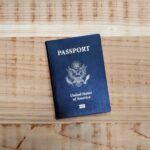Welcome to FindBiometrics’ digest of identity industry news. Here’s what you need to know about the world of digital identity and biometrics today:

DISA Wants to Procure, Not Develop, Solutions
Speaking ahead of the Defense Information Systems Agency’s “Forecast to Industry” event scheduled for next week, Operations and Infrastructure Center leader Don Means is calling for more support from the private sector with respect to the provision of warfighter and cybersecurity technologies, explaining that DISA does not want to waste time producing solutions that have already been developed by industry partners. Means highlighted the need for cybersecurity solutions, asserting that DISA defends against ‘hundreds of millions’ of cyberattacks every day.
Big Brother Watches PimEyes
The privacy advocacy group Big Brother Watch has filed a formal complaint against PimEyes with the United Kingdom’s Information Commissioner’s Office. Big Brother Watch argues that the company’s biometric software, which lets end users search for a database of publicly posted images from the internet using facial recognition, facilitates stalking. As the BBC notes, PimEyes’ service is similar to that of Clearview AI, though the latter only offers its face search technology to law enforcement entities, whereas PimEyes offers a paid service available to the public. The ICO has previously levied a £7.5m fine against Clearview.
Biometric Gun Startup Raises $14M in Series A
Biofire, a startup that is developing a handgun with a biometric safety lock, has raised $14 million in a Series A funding round. Little is known about the biometric mechanism that will be used in Biofire’s handgun. As Axios reports, the funding round is particularly notable for having been led by Founders Fund, whose partner Trae Stephens had previously expressed skepticism about the idea of “smart guns” but has since had a change of heart owing to legislative changes and technological advancements.
Outseer Names Chief Marketing Officer
Payments-focused anti-fraud solutions provider Outseer has named Scott Olson as its new Chief Marketing Officer. Olson comes to the company from TransUnion, where he served as VP of Global Product Marketing since 2018. In announcing the appointment, Outseer emphasized Olson’s experience in marketing security and fraud management solutions with various previous employers, including Iovation and Whole Security. “Notably, much of his track record was built in transactional fraud management businesses serving our core customer markets,” said Outseer CEO Joh Filby.
FPC Partners With Tag On Biometric Cards
Fingerprint Cards has established a partnership with Tag Systems that will focus on delivering fingerprint-scanning payment cards to the latter’s customers. While Tag Systems had partnered with Zwipe on a biometric payment card solution earlier this year, its new arrangement with Fingerprint Cards seems to be a separate business endeavor, with FPC announcing that their joint solution will combine its T2 fingerprint sensor module with “Tag Systems’ extensive payment card solutions and services, based on ST Microelectronics STPay-Topaz-Bio.”
Incode Gets Another Hospitality Partner
Hoteza, an IT solutions provider for hotels, has integrated Incode’s biometric onboarding system into its solutions portfolio. Its Hoteza Guest Journey Platform now enables hotel guests to engage in a Self-Check-In process that uses facial recognition to match them to their official identity documents. The partnership extends Incode’s presence in the hospitality market, with the company having established partnerships with INTELITY and Jumeirah earlier this year.
AT&T México Enables Biometric Contracts
AT&T México is replacing the use of signatures for in-store contracts with biometrics. The company is now allowing customers to establish new ‘digital contracts’ through a fingerprint scan, noting in a statement that the process will be ‘not only more practical, but also environmentally friendly.’ The company says that customers’ biometric data will not be stored in AT&T systems.
A New BIPA Suit, and a Dismissal
An Illinois Federal Court judge has dismissed a class action lawsuit against DePaul University over its alleged violation of the state’s Biometric Information Privacy Act (BIPA). The plaintiff had argued that the school failed to properly obtain consent for its collection of students’ biometric information through its use of ‘Respondus Monitor’ remote proctoring software. Judge Robert Gettleman agreed with the defendant’s argument that because the school was a participant in the U.S. Department of Education’s Federal Student Aid Program, it was entitled to a BIPA exemption for financial institutions.
Sysco, a restaurant food supplier, is facing a BIPA lawsuit stemming from its use of biometric fatigue monitoring systems, provided by Samsara, in its delivery vehicles. Like so many others, the company has been accused of failing to properly obtain written consent from those whose biometrics were collected – in this case its drivers. Sysco says it installed the driver monitoring system in an effort to comply with the U.S. Department of Transportation’s road safety regulations.
SolarWinds Reaches Class Action Settlement
SolarWinds has reached a $26 million settlement in a class action lawsuit over its catastrophic data breach in 2020. The data breach was the result of coordinated cyberattacks against its Orion software that included intercepting secret keys to bypass two-factor authentication, and exploiting weak passwords. The software was prominently used by government agencies, exposing a number of them to security vulnerabilities.
–
November 8, 2022 – by Alex Perala









Follow Us